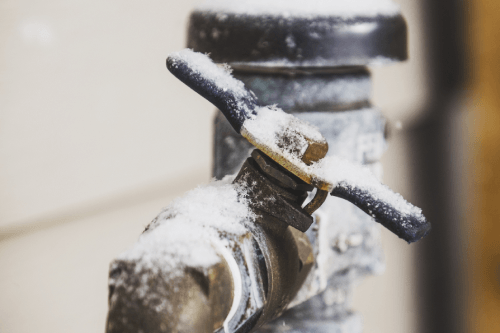Preventing Frozen Plumbing: Best Tips for Winter
Preventing Frozen Plumbing: Best Tips for Winter
Blog Article
Nearly everybody has got their personal piece of advice involving How To Avoid Freezing Pipes.

Cold weather can damage your pipes, specifically by freezing pipes. Below's how to avoid it from taking place and what to do if it does.
Intro
As temperature levels decline, the threat of icy pipes increases, potentially causing expensive repair services and water damage. Understanding exactly how to avoid icy pipelines is essential for house owners in chilly environments.
Recognizing Icy Pipelines
What creates pipelines to ice up?
Pipelines ice up when revealed to temperatures listed below 32 ° F (0 ° C) for prolonged durations. As water inside the pipes freezes, it increases, putting pressure on the pipe wall surfaces and possibly causing them to rupture.
Threats and damages
Frozen pipelines can result in water supply interruptions, building damages, and costly fixings. Ruptured pipelines can flood homes and trigger substantial architectural damages.
Signs of Frozen Water Lines
Recognizing frozen pipes early can avoid them from breaking.
Just how to recognize icy pipelines
Try to find decreased water flow from taps, uncommon smells or sounds from pipelines, and noticeable frost on revealed pipelines.
Prevention Tips
Insulating vulnerable pipelines
Wrap pipelines in insulation sleeves or utilize heat tape to shield them from freezing temperature levels. Focus on pipelines in unheated or exterior locations of the home.
Heating methods
Keep indoor rooms adequately heated up, specifically areas with pipes. Open up cabinet doors to permit cozy air to circulate around pipelines under sinks.
Protecting Outdoor Pipes
Yard hoses and outdoor faucets
Detach and drain pipes yard hoses before wintertime. Mount frost-proof faucets or cover outdoor taps with protected caps.
What to Do If Your Pipes Freeze
Immediate activities to take
If you suspect frozen pipes, maintain faucets available to relieve stress as the ice melts. Make use of a hairdryer or towels soaked in warm water to thaw pipes gradually.
Long-Term Solutions
Architectural modifications
Think about rerouting pipes away from outside wall surfaces or unheated locations. Add additional insulation to attic rooms, cellars, and crawl spaces.
Updating insulation
Purchase top quality insulation for pipes, attics, and walls. Proper insulation aids maintain consistent temperatures and decreases the risk of frozen pipes.
Final thought
Stopping frozen pipelines calls for positive measures and quick feedbacks. By comprehending the reasons, signs, and preventive measures, homeowners can safeguard their pipes throughout winter.
5 Ways to Prevent Frozen Pipes
Drain Outdoor Faucets and Disconnect Hoses
First, close the shut-off valve that controls the flow of water in the pipe to your outdoor faucet. Then, head outside to disconnect and drain your hose and open the outdoor faucet to allow the water to completely drain out of the line. Turn off the faucet when done. Finally, head back to the shut-off valve and drain the remaining water inside the pipe into a bucket or container. Additionally, if you have a home irrigation system, you should consider hiring an expert to clear the system of water each year.
Insulate Pipes
One of the best and most cost-effective methods for preventing frozen water pipes is to wrap your pipes with insulation. This is especially important for areas in your home that aren’t exposed to heat, such as an attic. We suggest using foam sleeves, which can typically be found at your local hardware store.
Keep Heat Running at 65
Your pipes are located inside your walls, and the temperature there is much colder than the rest of the house. To prevent your pipes from freezing, The Insurance Information Institute suggests that you keep your home heated to at least 65 degrees, even when traveling. You may want to invest in smart devices that can keep an eye on the temperature in your home while you’re away.
Leave Water Dripping
Moving water — even a small trickle — can prevent ice from forming inside your pipes. When freezing temps are imminent, start a drip of water from all faucets that serve exposed pipes. Leaving a few faucets running will also help relieve pressure inside the pipes and help prevent a rupture if the water inside freezes.
Open Cupboard Doors
Warm your kitchen and bathroom pipes by opening cupboards and vanities. You should also leave your interior doors ajar to help warm air circulate evenly throughout your home.

I'm just very involved in How To Avoid Freezing Pipes and I really hope you liked my blog posting. In case you appreciated our blog posting please make sure you remember to pass it around. We enjoy reading our article about Prevent Frozen Pipes .
Click On This Link Report this page